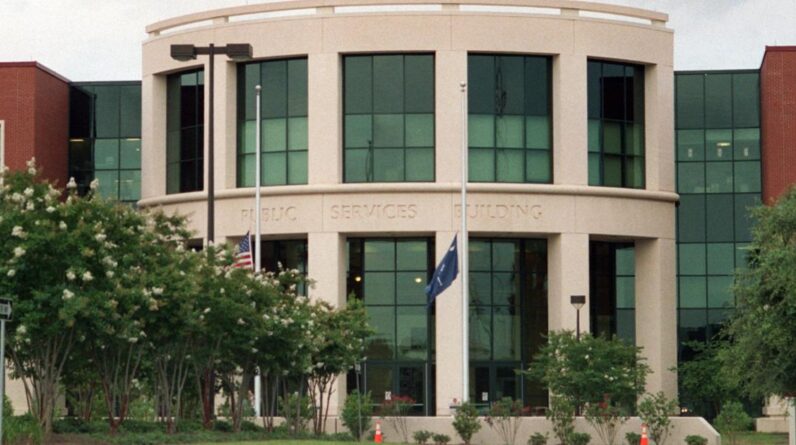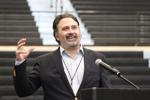
Democrats and Republicans on the Charleston County Council don’t always get along, even when it comes to commemorating George Washington.
An effort to recognize the nation’s first president on the 232nd anniversary of his visit to Charleston erupted in squabbling last week when members narrowly passed a resolution honoring Washington. The 5-4 vote broke down along party lines.
Council members from both sides gave different explanations for their votes for a resolution that carries little weight other than formally reflecting on the president’s historical significance.
Some members gave reasons that had little to do with Washington himself.
Councilman Henry Darby voted against the resolution in a move the Democrat called a “quid pro quo” over a dispute with a Republican over funding for the sheriff’s office.
That Republican, first Larry Kobrovsky, had “given” Darby his support for an additional $4 million in funding. The motion, introduced by Darby, failed on second reading after Kobrovsky changed his mind.
“Since the sheriff’s office budget motion was defeated … on partisan grounds, perhaps the same partisanship will apply to the George Washington resolution,” Darby said on May 9.

Debate over how the County Council might recognize Washington began in early March. Kobrovsky wanted Charleston County to honor February 22 each year for its original purpose: to celebrate the first president’s birthday.
He said the national holiday became “meaningless” in 1971 when it became known as President’s Day. He introduced a resolution commemorating February 22 as Washington’s birthday in Charleston County.
The figure holds a special place in local history, Kobrovsky said, explaining how Washington he stayed eight days in the Charleston area in May 1791, visiting such city sites as St. Michael’s Church, St. Philip’s Church, and The Exchange Building at Broad and East Bay Streets.
Councilman Rob Wehrman, a Democrat, seconded Kobrovsky’s resolution at a Finance Committee meeting in March. Before members could vote, Councilman Kylon Middleton expressed concern about the historical inaccuracies written into the resolution, particularly regarding Washington’s status as a slave owner.
Kobrovsky said he would take out the paragraph that mentioned slavery. The point of his resolution was not to “get into this controversy,” he added. Removing the language “doesn’t erase the spirit,” Middleton replied. Wehrman withdrew his support.
Councilman Teddie Pryor, another Democrat, did not want to “discriminate” against one president over another, especially Washington, “who actually enslaved my ancestors,” he said.
Without a second council member, Kobrovsky’s resolution died at the committee meeting.

Councilwoman Jenny Honeycutt introduced her resolution weeks later in honor of Washington in the context of the nation’s upcoming 250th birthday in 2026. Several constituents contacted the councilwoman to ask her to reconsider the issue after Kobrovsky’s resolution had failed, he said.
Honeycutt examined the County Council’s resolution in January to establish its 250th anniversary commission. The local committee was tasked with focusing on important events, people, and places during the Revolutionary War period in Charleston.
“Creating attention to our founding leaders, who at least in part got us to this place, is worthy of resolution and note,” he said. “And that was the reason I put it back in the revised context that I did.”
But tensions over Kobrovsky’s initial measure had already taken hold, and spilled over at the County Council meeting on May 9.

Middleton stated that he would vote against Honeycutt’s resolution in part because Washington was one of at least 10 US presidents to visit Charleston during their terms. The alderman added that he did not understand why a resolution commemorating Washington was being brought up again when it had previously failed.
Councilman Joe Boykin, a Republican, supported Honeycutt’s resolution. Washington was the only president of the 10 who participated in the Revolutionary War. The nation wouldn’t have a 250th anniversary if it weren’t for his leadership on the battlefield, Boykin said.
Pryor maintained his same position since the March meeting. Wehrman’s reasons for voting were not similar.
Darby explained that he was “the first in favor” of Kobrovsky’s resolution. But when the alderman changed his vote on Darby’s motion about money for the sheriff’s office, Darby changed his mind, too.
“I said, ‘Sir, this is important to you. And giving money to the sheriff’s department … was very important to me,” Darby recalled. “And I told him straight up, ‘I’m not going to support you because you haven’t supported me.’ “
Kobrovsky told The Post and Courier after the meeting that he “didn’t dream there would be opposition” to a resolution on Washington.
Chairman Herb Sass spoke last, after the body’s five Republicans and four Democrats each cast their votes. He seemed to appeal to a middle ground.
The County Council should make “special plans” in 2026 to honor each president who visited Charleston, he said.
Caitlin Byrd contributed to this report.
[ad_2]
Source link





